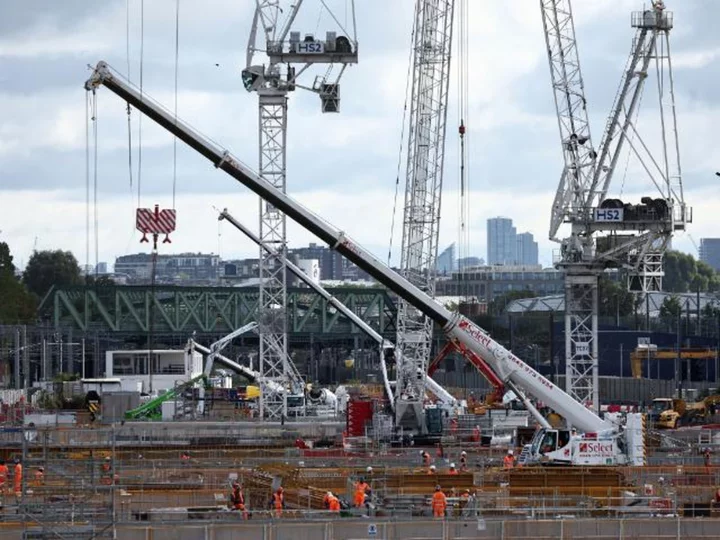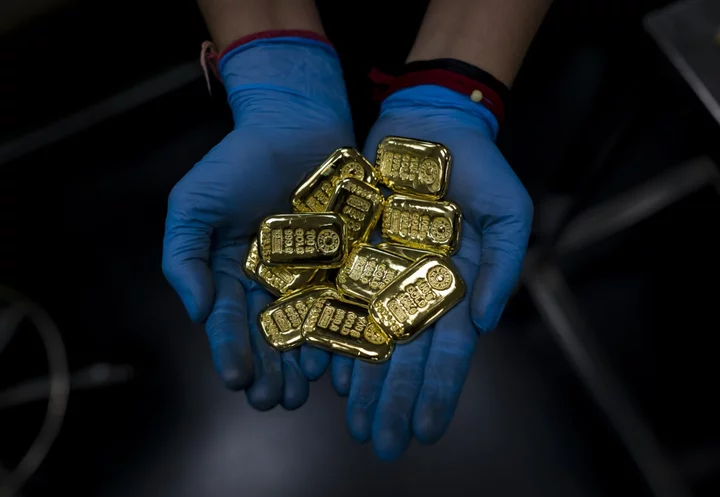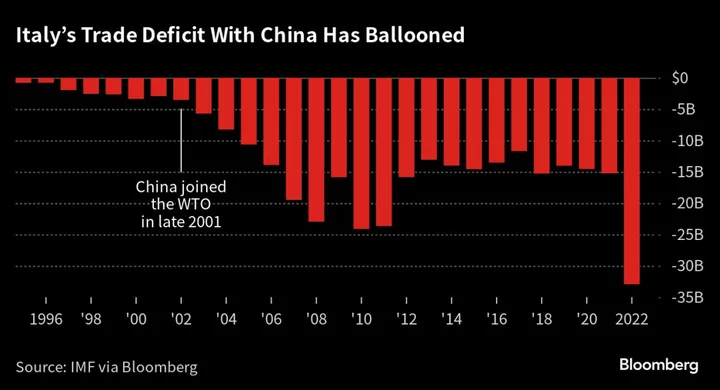In 1825, the world's first passenger train went into service in northern England. It heralded the start of a railway age that transformed the country's economy by slashing journey times, boosting trade routes and connecting major cities.
Fast-forward two centuries, and the United Kingdom has just abandoned its plan — 15 years in the making — for a high-speed railway network connecting London with the north of England.
That puts the UK at a serious disadvantage compared with most of the world's other advanced economies, many of which enjoy the benefits — financial and environmental — of high-speed rail.
The decision by Prime Minister Rishi Sunak to halt High Speed Two (HS2) in its tracks because of spiraling costs is just the latest example of Britain's economic decline, and it confirms a painful reality: the country can apparently no longer spend big on the kind of projects that Germany, France and Italy (never mind China or Japan) are still able to deliver.
I should declare a personal interest. My great-great-grandfather was one of the drivers on Flying Scotsman — at the time the fastest steam train in the world — during a record-breaking trip in 1928 from London to Edinburgh, so I feel oddly saddened by the decision to cancel plans to build the Birmingham-to-Manchester high-speed line. (The leg to Leeds had already been scrapped.)
Granted, there will be some compensation for northern towns and cities that will miss out on the jobs the mammoth building project would have brought, not to mention the business investment that speedier passenger and freight train travel would have attracted. Sunak said £36 billion ($43.7 billion) in savings would be redirected to new transport projects in the English midlands, the north of the UK and elsewhere.
"Our plan will drive far more growth and opportunity here in the north than a faster train to London ever would," he said Wednesday.
But a thriving economy may not have had to choose between the two, and the new projects will take years to develop, let alone deliver. Some of the alternatives Sunak highlighted were predicated on the delivery of HS2, said Henrietta Bailey, CEO of Greater Birmingham Chambers of Commerce.
Sunak's latest reverse-course on a strategic initiative — a year ago he was committed to HS2 — has managed to unite business leaders, labor unions and some of his political allies (including former Conservative prime ministers) in condemnation of the decision. They have also warned of a loss of credibility with investors.
"This is the biggest and most damaging U-turn in the history of UK infrastructure," the High Speed Rail Group, which represents companies such as Siemens, Hitachi and Bombardier, said in a statement. "Every other major European country has managed to build a high-speed rail network, recognizing it's a vital part of a modern society and economy for years to come. We'd like to think Britain still could too."
British manufacturers are mourning the loss of income they could have earned from the project and future business opportunities.
"The decision ... sends a hugely disappointing message about our commitment to completing major infrastructure projects in the UK," said Stephen Phipson, chief executive of Make UK, which represents manufacturing firms.
Mark Allen, chief executive of property group Landsec, said the root of the issue was "less about the specifics of what HS2 will or won't bring to the economy. It's more what that says about our ability, or lack of ability, as a country to deliver major infrastructure projects."
Sunak has worked hard to restore the UK's credibility since it was trashed this time last year when his predecessor — Britain's shortest-serving prime minister, Liz Truss — crashed the pound and UK government bonds. Investors threw her plan for huge unfunded tax cuts back in her face.
Now he's having his own date with reality. After the UK Treasury poured money into the economy to prop up businesses and households through the pandemic and the energy crisis — giveaways that Sunak oversaw as finance minister — its cupboard is bare.
Since the pandemic struck in March 2020, UK government debt has surged by 40% to almost £2.6 trillion ($3.3 trillion), exceeding 100% of national income for the first time since the early 1960s. And the nature of that debt is piling on the agony: Almost a quarter of it is tied to inflation. As prices shot up last year, so did repayments.
Britain spends more to service its debt than any other developed economy as a percentage of government revenue, and borrowing costs are increasing again. The yield on 30-year government bonds, or gilts, hit its highest level in 20 years this week, higher even than during Truss's tenure. The UK remains trapped in what its fiscal watchdog described earlier this year as "a very risky era for the public finances."
With crumbling public services from health to education desperate for more cash, and an election looming, Sunak blinked, taking the machete to billions in costs, when a scalpel would no longer do.
The country must hope that his latest policy reversal doesn't deter investors and further undermine a struggling UK economy, perpetuating a doom-loop of weak growth and underinvestment.
Business leaders aren't optimistic.
James Mason, chief executive of the chamber of commerce for West and North Yorkshire, said a decade of promises that would have delivered "life-changing infrastructure upgrades" had been canceled at a stroke.
"We are now left with the same Victorian rail network that will simply not have the capacity to deal with demand over the coming decades."
— Hanna Ziady contributed to this article.









